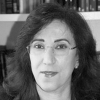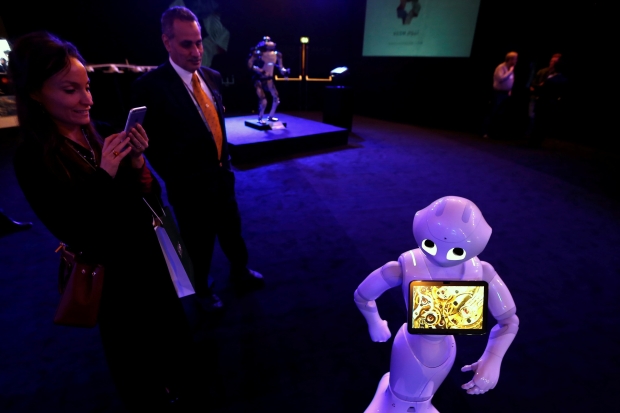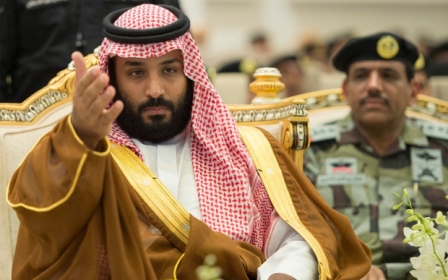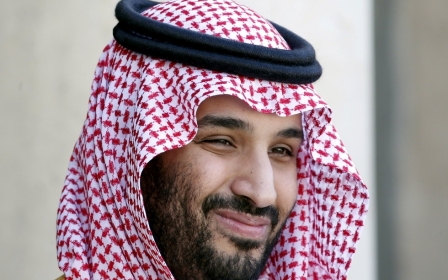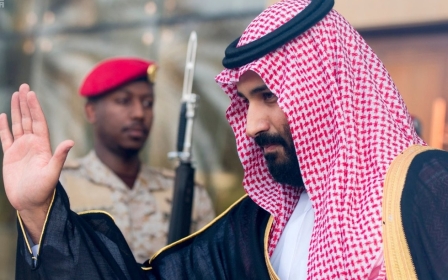Salman's 'moderate Islam': A Disneyland for robots, not an open society
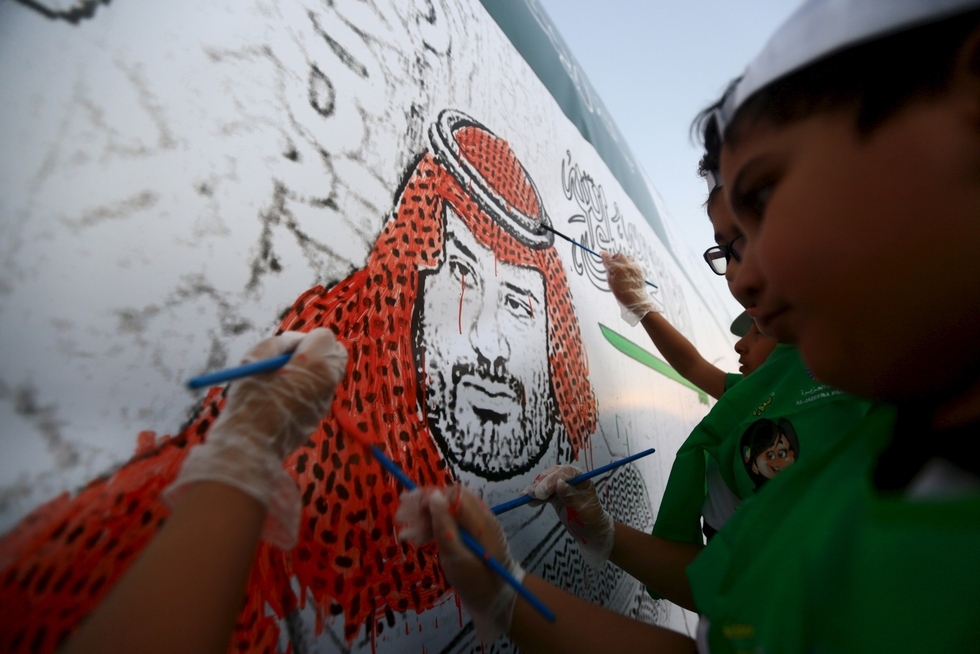
Crown Prince Muhammad bin Salman surprised Guardian readers when he gave an interview on 24 October to celebrate yet another ambitious hyper-modern $500bn economic project, Neom City, to be established on the Red Sea between Saudi Arabia, Egypt and Jordan.
For the anticipated success story of economic diversification based on Vision 2030, he announced the importance of simultaneous economic and social reform. “I will return Saudi Arabia to moderate Islam,” he promised.
Far-fetched objectives
The main objective is to call upon the international community to help make Saudi Arabia an open society again, as if in its recent history the kingdom had been a truly open society with a flourishing moderate Islam.
The prince seems to have missed important aspects of both moderate Islam and the principles of open society. In fact the Saudi regime has always been, and continues to be, a staunch enemy of both. The advent of a reformed Islam from above and an open society from below are far-fetched objectives given the current reality and practices of the regime.
The prince seems to want now a politically oppressive Islam that criminalises disobedience to autocrats combined with a liberal outlook that accepts and praises pop music and dancing
Throughout the last 80 years, the regime relied on radical interpretations of Islam to domesticate, control and force into submission a diverse Arabian population.
It was the first time in Islamic history when we encounter a sectarian radical religious tradition by the name of Wahhabiyya becoming the religion of the state, supported by the mighty sword and petrodollar.
The priests of Wahhabiyya
Historically, fringe radical interpretations of Islam survived only in the distant and isolated deserts and mountains of the Muslim world where such movements were expelled. These radical trends such as the Kharijites, dissenters who challenged Muslim leadership and degenerated into a violent sub-sect, collapsed and dissolved as they failed to appeal to Muslims.
But in Saudi Arabia a unique sectarian trend by the name of Wahhabiyya, mistakenly called reformist Islam or a unitarian movement, persisted from the mid eighteenth century. The diverse Saudi population was forced into submission in the name of God, constructed as a mighty, angry and unforgiving deity.
For a religious reformation to take hold, it has to be the product of debates within Islamic circles, completely free from state control from above
Those who interpreted his words became state notables, a high priestly caste with powers to excommunicate whole communities and individuals for practicing allegedly unorthodox rituals.
To avoid further antagonising the high priests of Wahhabiyya, the Saudi rulers targeted and repressed the Sahwa, a diverse Islamic awakening movement that in the 1990s called for going back to Islam in the contemporary Saudi state.
The Sahwa was not all about radical jihadis. It included people who peacefully wanted to escape the heavy heritage of Wahhabi dogma, especially the total submission to autocratic leaders such as the Saudi kings.
Others within the Sahwa wanted a return to the original pact between the Wahhabis and the Al-Saud, in which the former were in charge of people’s piety and the latter were responsible for dealing with politics and economics.
Religious reformation
It is not clear how a real Saudi religious reformation is going to be brought about by the regime, especially when a large number of activists, clerics, professionals and even poets, not all of whom are radicals or critics of his new vision, have been jailed in the latest wave of detentions a couple of months ago.
For a religious reformation to take hold, it has to be the product of debates within Islamic circles, completely free from state control from above. Liberation theology is not always born in the courts of autocratic monarchs and princelings. But the prince has in mind something else, a royal theology that criminalises criticism, dissent, and even peaceful activism.
Without giving people a voice, Saudi Arabia will remain a closed society in which the state controls religion
There is something specific to Islam, mainly its ability to reform itself by itself. Its multiple schools of jurisprudence that inform the interpretation of sharia, rich texts that lend themselves to human ijtihad (legal interpretations), and the tradition of kalam, debate in study circles, have all but vanished under the rule of the Al-Saud.
The end result is the imposition of one Islamic interpretation and the closing of the gates of ijtihad for the purpose of preserving the absolute monarchy. The prince seems to want now a politically oppressive Islam that criminalises disobedience to autocrats combined with a liberal outlook that accepts and praises pop music and dancing.
What is moderate Islam?
Does this moderate Islam mean the abolition of the death penalty, prohibiting polygamy, allowing religious debate on hereditary rule, the nature of Islamic government, and the illegitimacy of monarchy in Islam? Does moderate Islam mean allowing civil society and trade unions to flourish as these are modern versions of the old Islamic guilds that protected society, professionals, and craftsmen against the excesses of power and abuse?
Does this projected moderate Islam mean real consultation, shura, that translates into an elected national assembly, representative government, and a constitution akin to the old documents of Madina where the Prophet Muhammad established the first Islamic state?
Far from it. The prince's moderate Islam is a new specific project in which dissenting voices are silenced, activists are locked behind bars, and critics are forced into submission. It is a moderate Islam that ironically justifies, sanctions and praises the most radical government practices. But note that this moderate religion has ample scope for entertainment, fun and leisure.
Saudi control over religion spoiled Islam and turned it into a legitimacy tool with the most radical outlook
More recently, the new religion allows women to drive, perhaps also to drive themselves to prison, should they question the regime's economic policy or social agenda. But they should rejoice as they will be able to dance in the streets and mix with men in public.
Such reform is believed to be essential for economic renaissance and a technology-based economy that sounds like Disneyland.
Robot Sofia, the latest addition to the repertoire of the promised gadget economy, is now a Saudi citizen, a symbol of the drastic changes awaiting the born-again moderate Saudis. Sofia is not obliged to wear the veil as plastic dollies and beheaded manikins in fashion shops had to in a previous era.
In the future, the regime may consider turning Saudi citizens into unquestioning robots, who willingly and submissively endorse and appreciate not only the so-called moderate Islam but also the new promised Disneyland.
A promised utopia
"Open Society" is another promised utopia in the prince's vision to replace the Islamic utopia that had been based on the most extreme interpretations of Islam. Most reasonable people would understand open society to be a fully-fledged democracy, where civil and political rights are guarded against their enemies.
But so far the regime has proved again and again that the last thing it wants is an open society. With serious restrictions on people's human rights, freedom of speech, freedom of association, and even freedom of religion and no-religion, this anticipated moderate open society is rather a caricature of itself.
Yes Saudi Arabia is open to international capital to save it against the perils of depending on a single oil commodity with fluctuating prices. It is also open for international business to set up shop in the kingdom. Consumer products flood the markets with some promises to train women in the art of makeup, thus creating new job opportunities. But an open society is far from being the objective of Vision 2030 or reforming Islam.
Beyond the hype that accompanies the media prince and his multiple utopias, we must temper our expectations and hopes. Without giving people a voice, Saudi Arabia will remain a closed society in which the state controls religion, an old project that did not infuse the state with moral and just principles nor reformed religion.
In fact, Saudi control over religion spoiled Islam and turned it into a legitimacy tool with the most radical outlook.
It gave Islam and Muslims a bad name.
Beggers at the palace gate
The international business community stands like beggars at the gates of the palace, awaiting more announcements to benefit from. It seems that this community does not appreciate its strength as it alone can make the prince's dream come true.
Without losing profit, corporations must honour their corporate responsibility and insist on real openness, not the false kind promised by the prince. Their work environment will definitely be better should there be respect for human rights in the kingdom and good governance, even with rudimentary aspects of democracy. Their lives and that of their employees will be in danger under conditions of repression and opaqueness.
Business may look rosy in a dictatorship in the short time but in the long term this is an unsustainable utopia marred by repression. Remember you can be thrown out of the country any time in the land where there is no rule of law but the rule of the prince.
- Professor Madawi Al-Rasheed is a visiting professor at the Middle East Centre at LSE. She has written extensively about the Arabian Peninsula, Arab migration, globalisation, religious transnationalism and gender. On Twitter: @MadawiDr
The views expressed in this article belong to the author and do not necessarily reflect the editorial policy of Middle East Eye.
Photo: Saudi boys paint a mural depicting Saudi Arabia's Deputy Crown Prince Mohammed bin Salman during an activity for national drawings in Jeddah 29 October 2015 (Reuters)
This article is available in French on Middle East Eye French edition.
Middle East Eye propose une couverture et une analyse indépendantes et incomparables du Moyen-Orient, de l’Afrique du Nord et d’autres régions du monde. Pour en savoir plus sur la reprise de ce contenu et les frais qui s’appliquent, veuillez remplir ce formulaire [en anglais]. Pour en savoir plus sur MEE, cliquez ici [en anglais].


